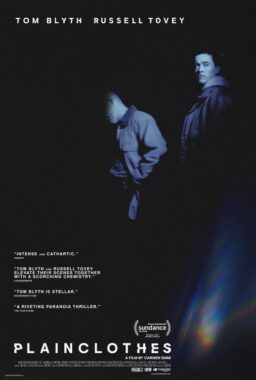Once was that all American movies were made by Hollywood directors, and the way you got to be a Hollywood director was to have been one for 30 years. A few foreign directors like Jean Renoir were summoned to Hollywood, but they invariably found it impossible to make movies with the studio czars breathing in their ears. And so it was often true that Hollywood movies were products of Group Think, and foreign movies were the work of individual directors.
That’s no longer quite the case. Since the breakdown of the Hollywood assembly line and the tendency to make films one at a time for a more literate audience, studios have been giving their directors more freedom. Who would have guessed 20 years ago, for example, that Paramount would entrust one of its most lucrative properties to a young Polish director without previous Hollywood experience, and then let him write his own script and edit the movie to satisfy his own whims? That is the case with “Rosemary’s Baby,” which Roman Polanski directed without anybody looking over his shoulder. Polanski is the first director from an Iron Curtain country to work in Hollywood.
The result is a chilling, macabre film of the sort Polanski has already made in Europe. His first film, “Knife in the Water,” is recognized as a classic.
His others have been “Repulsion,” the curious, brilliant “Cul-de-Sac,” and the dreadful “Fearless Vampire Killers.”
“I saw ‘Vampire Killers’ and I wanted to throw up,” Polanski admitted with candor during an interview last week. “The producer cut 20 minutes out of it and added a little cartoon to explain vampires. It was a botch.” All Polanski’s films have dealt with macabre, bizarre subjects. “Rosemary’s Baby” tells of a pregnant young girl (Mia Farrow) who suspects her husband (John Cassavetes) has already sold their baby to witches next door.
Not surprisingly, Polanski considers the Spanish director Luis Bunuel (who often uses black magic, fetishes and the supernatural in his films) to be his greatest influence.
A small, slight man who looks much younger than his 34 years, Polanski could pass for a member of a pop group.
He is modest and proud by turns; told he was lucky to get such a splendid performance from Cassavetes, he said: “Luck has nothing to do with it. I am a good director.”
Paramount signed Mia Farrow for the role, Polanski said. “I had only seen her on the cover of Life. To be honest, I was not enthusiastic about her until we started to work. Then I discovered, somewhat to my surprise, that she is a brilliant actress. This is one of the most difficult woman’s parts I can imagine.” There are also splendid performances from veterans Ruth Gordon and Sidney Blackmur, who play the strange couple next door with a hearty friendliness and the most sinister undertones.
“I just let them act,” Polanski said. “That is my method. Once you start discussing a part with an actor, he won’t let you alone. He’ll start in on motivation and all that nonsense.”











